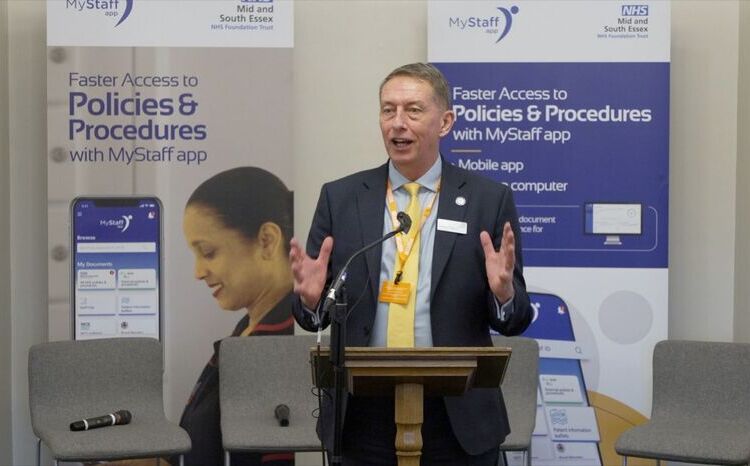Bradford to be first ex-Accenture acute trust to go live
- 26 February 2007
The first acute trust in the two NHS clusters that Computer Sciences Corporation officially took over from Accenture in January has told E-Health Insider it is confident it will go live with a new patient administration system by this April.
Bradford Teaching Hospitals NHS Foundation Trust has told E-Health Insider that it is on track to become the first hospital in the North East to go live with a CSC provided iSoft iPM PAS system as part of the NHS National Programme for IT.
An exclusive E-Health Insider telephone poll of seven trusts in the North-east and Eastern clusters has found that Bradford should go live on 2 April, with three other trusts in the two clusters saying they will follow in the same month.
Assuming Bradford’s implementation goes well, three further acute trusts, Airedale, Ipswich and Northampton General, all told EHI that they believe that they will be live with new systems by the end of April. In addition County Durham and Darlington Acute Hospital NHS Trust says they have already partially implemented their new PAS.
County Durham and Darlington began the first phase of deployment last year, and the system is partially live. A spokesperson was unable to comment to EHI on when they were expecting the system to go fully live.
EHI contacted all the trusts in the two clusters, named by CfH last summer to the House of Commons Public Accounts Committee as due to go-live by 31 October, and found many of them were preparing to go-live in April with the iSoft PAS delivered by CSC.
All four trusts named by the LSP in the Commons Public Accounts Committee report last July, failed to go-live by the end of last year.
One of those trusts, the Weston Park site, part of Sheffield Teaching Hospitals NHS Foundation Trust ended its Accenture iPM implementation, after a confidential September review by the trust concluded the software was at that point ‘not fit for purpose’.
Frustrated by delays and unconvinced by the software being offered to it last August, Bradford went to OJEU tender outside of the national programme for a PAS.
By October, however, the trust announced that it changed its mind and signed a deal with CSC to implement iSoft’s iPM in just six months, in a deal underwritten by NHS Connecting for Health.
The deal included an assurance from CfH that the system would be live by 31 March, making the implementation the fastest ever for an acute PAS under the auspices of the CfH programme, with previous implementations typically taking at least a year of planning and preperation.
A spokesperson for Bradford told EHI last week: “We are on course for a go-live date of 2 April, for what will be the fastest ever implementation of an acute PAS. Progress is going well.”
The implementation will be the first test for CSC in deploying iSoft systems into acute trusts in the two clusters which had previously been led by Accenture. Work on hospital PAS deployments had effectively been wound down, with Accenture acute implementation teams stood down from last July, during lengthy contract renegotiations with CfH.
Accenture’s departure from the NPfIT programme as LSP for the North East and Eastern clusters was announced in September. The agreement with NHS Connnecting for Health, which saw Accenture pay penalties and CSC take over as LSP in the two clusters, was the culmination of many months of contractual wrangling during which time work on acute implementations had all but ended.
In September it was announced there would be a 100 day migration period occurred for CSC to take over responsibility for all CfH deployments, except for Picture Archiving and Communications Systems (PACS) for which Accenture retained responsibility. The handover was completed in January.
There has not been an acute PAS deployed under the CfH programme within the North East and Eastern clusters since last summer. The two clusters in January became the responsibility of CSC following a three months transition. Only two acute PAS systems in total have been deployed in the two clusters since the NPfIT programme awarded LSP contracts in late 2004.
Notes on the Connecting for Health deployments update website indicate that trusts that have deferred deployments did so due to ‘issues with software delivery, legacy integration, reporting and continuity during business cutover.’
EHI’s telephone poll of those trusts now due to go live by April indicates that they believe the majority of these issues have been resolved and although they could not give a firm go-live date, all told EHI that they are ‘aiming for a mid to late April go-live.’
The trust’s contacted appear more optimistic than Connecting for Health’s own latest 12 week deployment forecast for 12 February to 7 May 2007, which indicates that only two trusts, Bradford in the North East and Cambridge PCT in the Eastern are due to be deployed in this period.
A spokesperson for Cambridge PCT confirmed that they were still on course for a 2 April deployment, as indicated in the report.
At least one other trust is waiting to see how things develop under CSC. Newcastle Upon Tyne Hospitals NHS Trust also left the National Programme last April. Newcastle says it has yet to decide whether it will procure outside the national programme.
The trust’s project manager, Mike Mythen, told EHI: “The trust is continuing with its OJEC tender for new IT systems at Newcastle. We are now in the middle of processing responses, and are talking with the CSC Alliance as part of this to consider going back to the national programme. However, we will not reach a conclusion to this until June at the earliest.”
In a statement CSC told EHI: “Our current approach includes working with all Strategic Health Authorities to discuss their needs for the forthcoming year and beyond.”
At the time of going to print, CSC told EHI that issuing projections for the year ahead would be unproductive, but they were keen to discuss there strategy for their NPfIT work, in the North-east, Eastern and North-west and West Midlands clusters with EHI at a later date.




